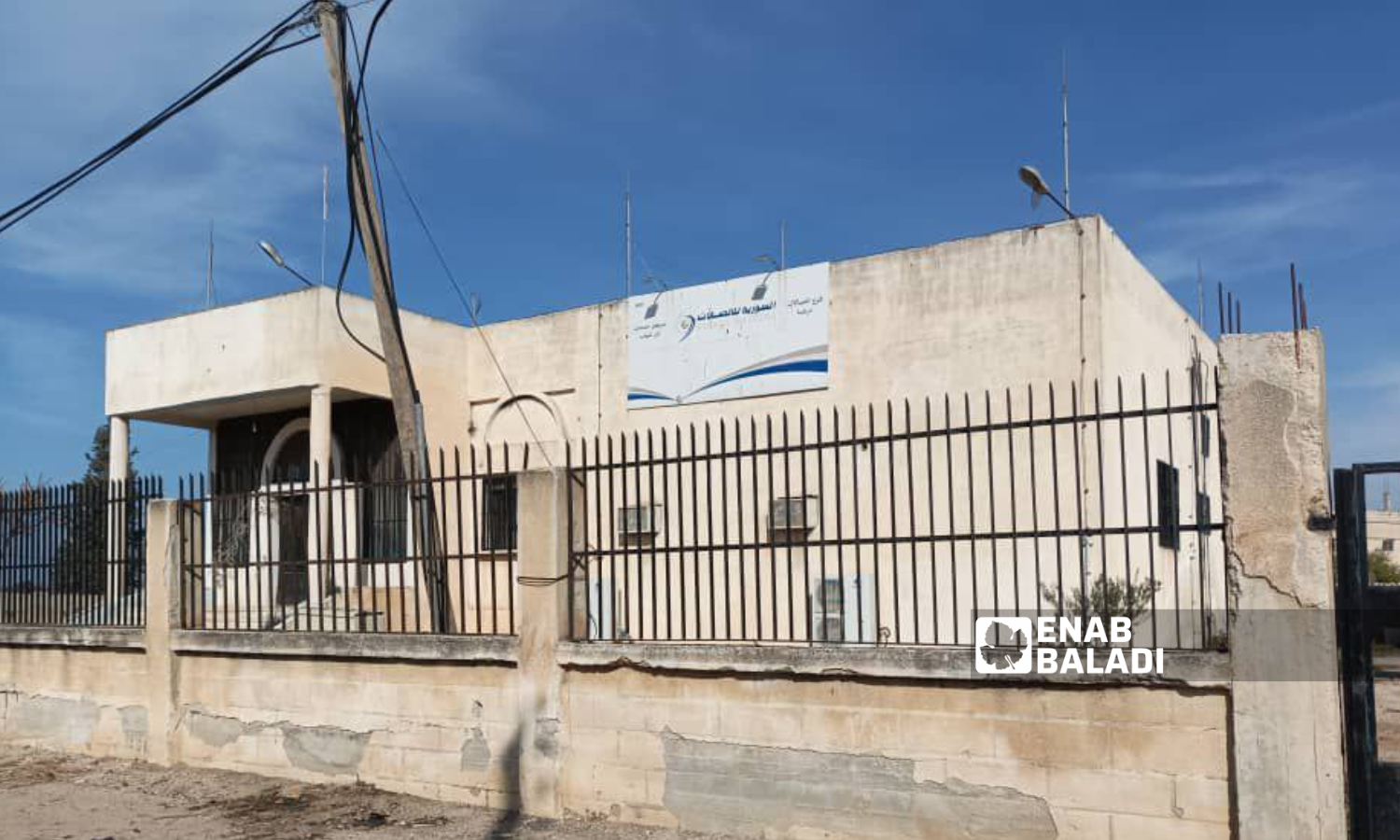



Daraa – Halim Muhammad
The Internet in the town of Tal Shihab and its perimeter, west of Daraa, is still down following the theft of the main cable feeding the town’s main telecommunications exchanger by unknown persons.
The problem of internet outages in the town is not new, as internet cables have previously been stolen, along with other telephone lines in the area.
During the past two years, the theft of home telephone cables has been an almost daily problem in the region. However, the availability of Internet services made up for the lack of telephone services.
The region has been out of telecommunications services for the past few months owing to acts of theft affecting all ground communications and Internet services.
On 6 January, dignitaries from the town of Tal Shihab met with the assistant director of the Daraa telecommunications company, Ahmed Zaid al-Hariri, to come up with solutions to the problem of the theft of telecommunications cables.
The meeting brought together the town’s dignitaries and representatives of local committees, along with officials from the Daraa telecommunications company. The assistant director of the company undertook to repair the damage to the telecommunications exchanger.
While the notables, in turn, pledged to protect public property, including the exchanger and communication and electricity lines and suggested that the town’s youth would conduct night patrols to protect these properties.
The roots of the problem date back to mid-2021, with the Hatif Tal Shihab Facebook page representing the town’s telecommunications exchanger publishing that the theft of ground cables continues, despite repeated appeals from residents to stop the disconnection of communications in the village.
On 28 October 2022, the main fiber-optic cable feeding the Tal Shihab exchanger was stolen near the town of al-Yadoudah, which disrupted communications and the Internet for four consecutive days throughout the town.
Abdul Rahman, 50, a resident of Tal Shihab, who was present at the meeting, told Enab Baladi that the town is vast and difficult to fully control, so patrols are useless in stopping cases of theft.
He had proposed that night watch patrols be set up in each of the town’s neighborhoods separately to control the area more broadly.
Hussein, 25, proposed to install night lights in the streets through local initiatives, similar to some towns and villages of Daraa, given the absence of government electricity services.
Road lighting could mitigate thefts since thieves are taking advantage of the nighttime and dark places to steal cables.
For his part, Mohammad (35 years old) demanded increased penalties and social ostracism for those found to be related to thefts as the most important steps. Clan immunity for all involved in thefts, which had become apparent in all towns of Houran, must be lifted, he added.
In April 2022, the Hatif Tal Shihab page said that more than 50 Internet gateways had ceased to operate following the theft of feeding cables. If the thefts continue, the exchanger will be witnessing its last days of existence.
Thieves steal cables and extract copper material from them by burning them and then selling them to scrap dealers at a price of 35,000 SYP a kilogram.
In April 2019, the Directorate of Communications installed a solar energy system for the exchanger, which ensured more hours of operation.
Umm Mohammad, 40, a resident of Tal Shihab, told Enab Baladi that she had been cut off from the outside world since New Year’s Eve when communications cables were stolen, and the service was down in the entire area.
Umm Mohammad speaks of her need to communicate with her children residing in other governorates on a daily basis, while regular mobile telecommunications services are expensive and unaffordable.
The high cost also applies to the Internet coming from Jordan, which feeds many areas of Daraa governorate, but to which not everyone is able to subscribe, says Umm Mohammad.
The local Internet service provided by the Syrian Telecommunications Establishment costs 10,000 SYP per month, while the monthly subscription to the Jordanian Internet services costs 50,000 SYP.
Since the start of the revolution, the Internet has been an important weapon in conveying events in Daraa governorate, which saw the first anti-regime protests, prompting the latter to disconnect services in the governorate. Nevertheless, the Jordanian Internet solved the problem, given that the governorate is located on the northern borders of Jordan.
Later during the revolution, satellite Internet devices entered Daraa. But its high cost has made it affordable only to certain media organizations and Internet cafés, prompting activists and civilians alike to search for new technologies that enable them to connect to the Jordanian Internet in their homes instead of going to the border. This is now known as the Jordanian Internet subscription in Daraa.
if you think the article contain wrong information or you have additional details Send Correction